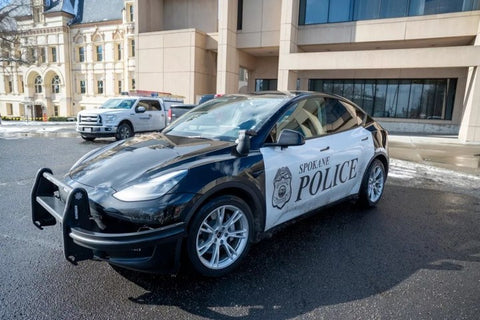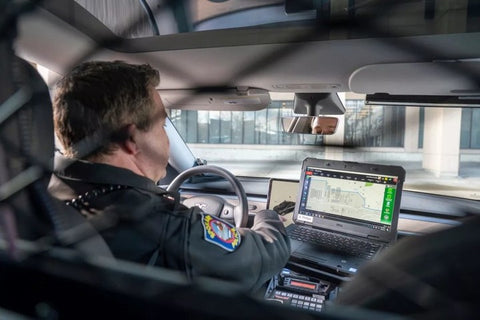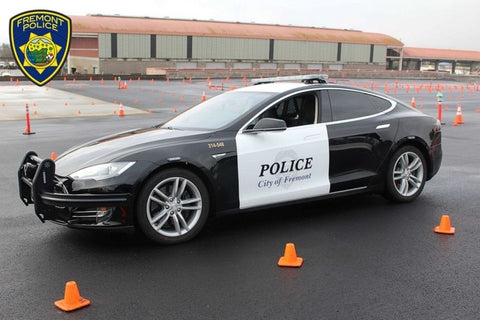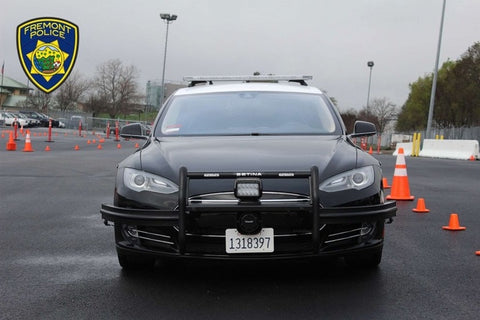Purchasing a Tesla as a police car? U.S. police don't want one
Electric cars are clearly one of the future paths in the automobile industry, and an increasing number of people are opting to purchase electric automobiles as their primary mode of transportation. However, in Spokane, Washington, where 64 police cars are expected to be purchased, the government's intention to purchase electric vehicles such as Tesla has been greeted with resistance by many frontline officers. The Tesla Model Y can accelerate from zero to 60 mph in under a second, and the Bargersville, Indiana, Police Department has purchased many Tesla Model 3 vehicles, saving more than $6,000 after a year of use.

In addition to the United States, there are police departments in Australia and Switzerland that purchase Teslas as police cars. Since Tesla can save money and electric cars are greener for travel, why don't the Spokane police officers want to use Tesla as a police car?
The Spokane police gave the most straightforward reason - the Tesla has cramped interior space. They believe that the Tesla is not a suitable police car, it is too small and not designed for police work.

The police car version of the Tesla is currently being tested at the Spokane, Washington, Police Department. In a real-world use scenario in the car demonstrated by Officer Shane Phillips, the laptop that the police officer uses to answer calls and display information about people and cars obscures the car's control unit components on the touchpad inside the car.
To use the device to control lights, wipers, etc., the police officer would have to remove the laptop. In a complaint investigation conducted by the police department about the Tesla, people also reported that the space inside the car was too cramped. People sitting in the passenger seat, for example, would have their space encroached upon by the laptop stand that the police officer would need to use.

Spokane police officers are most concerned about the Tesla's inability to provide a comfortable ride, and police officers in the Fremont, California police department, have also lost suspects because of the Tesla's power problems.
People who own electric cars will always worry about driving long distances and worrying that they won't be enough to support the range, and with the current poor rollout of charging posts, charging is a problem that can't be ignored.
In September 2019, Fremont police officer Hartman was chasing a Toyota driven by a suspect at more than 100 miles per hour on Interstate 680 South when he suddenly reported that he was unable to continue the pursuit and needed to request backup. The reason was that the Model S he was driving was running low on power.

In the end, Hartman had to give up the chase and look for a charging post to recharge, and although reinforcements were later made to continue the chase, the suspect was nowhere to be found when he crashed his vehicle on the side of the road.
The car failed to catch up with the suspect's Tesla police purchased in January 2018 for $61,000. The police department then spent more than a year modifying it with light bars, push bar bumpers, armored door panels and a prison cage.

Spokane police currently prefer to use the hybrid Ford Expedition as a police car, in addition, the Spokane Police Department also said that the cost of fully equipping the Tesla as a patrol car is about $30,000, not including the cost of purchasing the vehicle, while the Kia hybrid only costs about $8,000 to $15,000. Add in the additional cost of commissioning, the cost of the Tesla and the hybrid car is not really that different.
The police department said it is not opposed to choosing an electric car in the future, but they do not believe the Tesla is the right car for patrol officers to use. In response, the Spokane administration's Council President Beggs said that if the police department does not want a Tesla, they can choose another electric car. What car should be selected as a police car, there is no final decision.






























